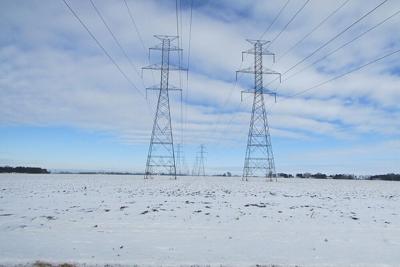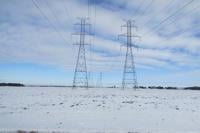
Louisiana utility regulators are challenging the Midwest Independent System Operator’s plans for $22 billion in electricity infrastructure improvements.
A regional electricity grid operator has labeled a complaint by the Louisiana Public Service Commission and other states about plans to build $22 billion in future energy projects in the Central U.S. as a threat to the nation’s economic future.
Public service commissions in North Dakota, Montana, Arkansas, Mississippi and the Pelican State are challenging the Midcontinent Independent System Operator’s (MISO’s) plan to build $22 billion in new transmission projects that the complainants say don’t provide enough benefits to stakeholders.
The commissions filed their complaint with the Federal Energy Regulatory Commission (FERC) in July, and MISO responded to it in a filing last month. The complaint contends the nonprofit grid operator used “unreasonable benefit metrics” in its review of the $22 billion in energy transmission investments, dubbed Tranche 2.1.
“The new and revised benefit metrics are based on patently unreasonable assumptions that have not been accepted by FERC,” the public service commissions’ complaint states. “MISO and the Board (of Directors) ignored concerns raised by stakeholders. …”
The commissions represent states that will not be relying on Tranche 2.1 projects to meet their future energy needs, to develop renewable energy or to reduce greenhouse gases, according to the complaint.
“They have no need for the transfer capability that Tranche 2.1 will offer nor any interest in subsidizing Tranche 2.1 costs to advance the clean energy and decarbonization goals of other states in MISO,” the complaint says. It adds that MISO’s alleged mischaracterization of the future projects will mean that customers in some states will share in the costs without enjoying any benefits.
A MISO spokesman told the Louisiana Record in an email that the Tranche 2.1 review was carried out through a collaborative process that included stakeholder engagement plus more than 300 meetings and discussions about solutions and benefits.
“The portfolio supports reliability and the future needs of the system,” spokesman Brandon D. Morris said. “Tranche 2.1 costs will be allocated to states in MISO’s Midwest Subregion where transmission solutions will be built. Southern states will not be allocated costs based on MISO’s FERC-approved Tariff.”
In its response to the complaint, MISO said the need for reliable electricity transmission infrastructure has never been greater.
“Federal and state policies are dependent on this growth in electricity demand to advance the competitiveness of the United States in the deployment of artificial intelligence technologies and support needed economic development,” the response states. “MISO’s well-established, independent and FERC-accepted transmission planning practices are positioning the MISO region to successfully meet these challenges.”
If FERC sides with the public service commissions’ arguments, the result would be regulatory uncertainty, haphazard planning and inadequate infrastructure to support future economic growth nationwide, according to MISO.
“The complaint jeopardizes the ability of MISO and its state partners to support the anticipated growth in electricity demand and would increase costs to customers within the MISO region by replacing an efficient, regional solution with a piecemeal one,” the response says.
The Tranche 2.1 projects are documented to provide $1.80 to $3.50 in benefits for every dollar spent on them, according to MISO. The grid operator added that the commissions’ complaint fails to identify any violations of its Open Access Transmission, Energy and Operating Reserve Markets Tariff.





